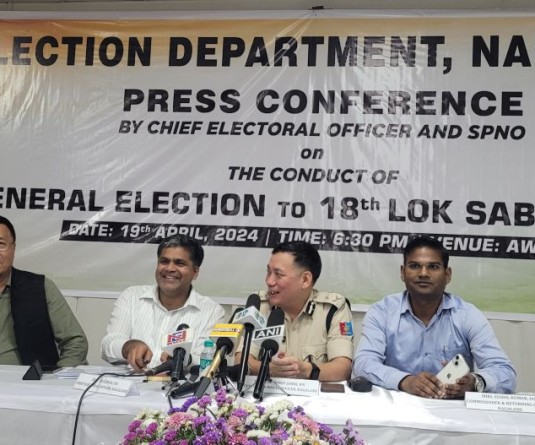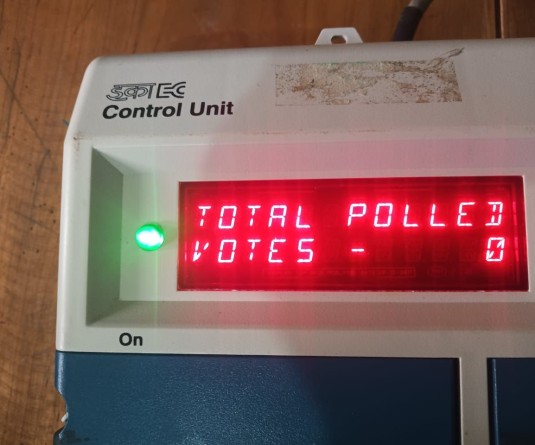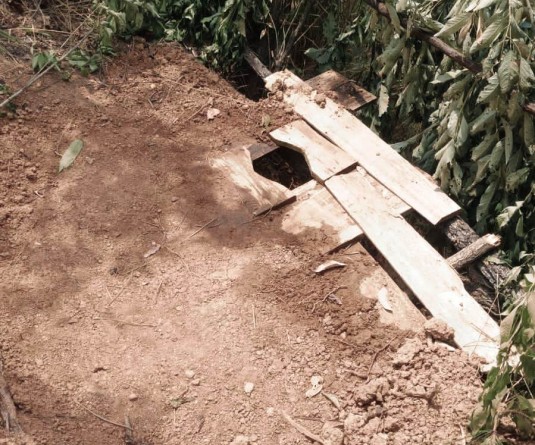Female-friendly toilets at Kamdi market, where most of the vendors are women was dedicated on July 20. Kamdi market is situated in Beisumpuikam village under Peren district. (Photo Courtesy: Sisterhood Network)
Female-friendly toilets inaugurated at Kamdi market
Peren, July 21 (MExN): ‘Proper sanitation is a basic human right but many people, especially women and girls, cannot go to toilets when or anywhere they need or want.’ This was highlighted by the Sisterhood Network (SN), Nagaland in a press note on July 21.
“Poor access to proper toilet and sanitation disproportionately affects women and girls. They need privacy to maintain menstrual hygiene because using the same sanitary pads for too long can increase the risk of infections such as UTI, hepatitis B and thrush. Moreover, it is easier for men to urinate as women need more privacy, time and space. The availability of proper toilet is a prerequisite for women and girls’ sexual and reproductive health rights,” said Arenzungla Jamir, Admin/Researcher, SN.
“It is imperative in the part of community leaders to create awareness about proper sanitation and hygiene; and to dispose products in a culturally and socially appropriate way so that the toilet remains suitable for use,” added Nancy Sangtam, Women and Child Sponsorship Coordinator, SN.
Underscoring the need for female-friendly toilets at Kamdi market, where most of the vendors are women, public toilets sponsored by Actionaid under Fit for The Future (FFTF) program and implemented by Sisterhood Network was dedicated on July 20. Kamdi market is situated in Beisumpuikam village under Peren district.
“The role and responsibility of the government is vital to achieve universal access to sanitation,” SN stated while the team briefed the Beisumpuikam community leaders about the UN recognition of water and sanitation as human rights. It also stated that they are essential to the realization of all human rights.
The community leaders were made aware that human rights criteria specify that toilets should be sufficient in number, physically accessible, safe, affordable, designed for use by all, culturally appropriate and suitable for all genders. The Sustainable Development Goals (SDGs), agreed by 193 countries in 2015, include a target to achieve universal access to adequate and equitable sanitation and hygiene for all by 2030, with special attention to the needs of women and girls and those in vulnerable situations.
The weekly Kamdi market in Beisumpuikam village was started in October 2017 to cater to the needs of nearby villages where they could sell their products and buy from other sellers from neighbouring villages and towns. The market provides the needs to six villages including Beisumpuikam, Jalukiekam, Leibemphai known as Beisumpuikam B, Jalukiezangdi, Jalukie singso, Munglamukh, Maisibailam (Assam), Nepali Bosti (Assam) and other nearby colonies.
“The Covid-19 pandemic has pushed many daily wage earners to lose their jobs and affected their livelihood. The toilet construction under the FFTF program also served as an opportunity for daily wage earners from Beisumpuikam village to earn their livelihood. The construction is possible because of the donation of land from the Beisumpuikam village for the community,” SN added in its release.





